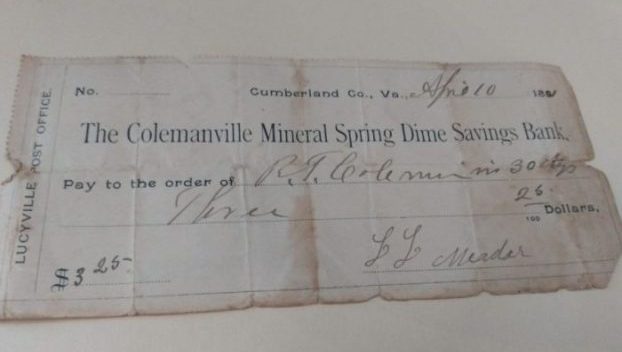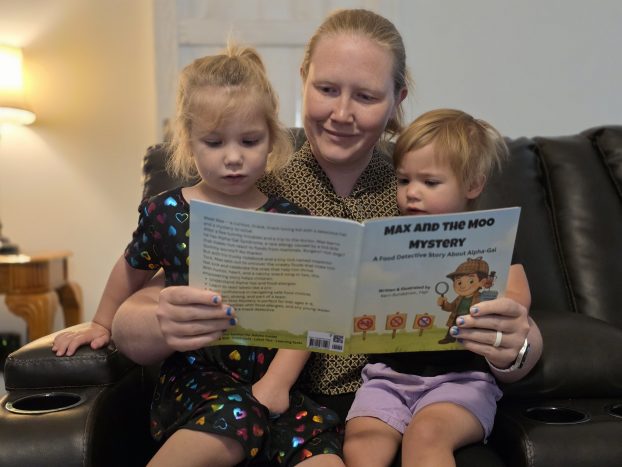Cumberland History: What do we know about Lucyville?
Published 1:55 am Saturday, July 1, 2023

- A look at a check written from the bank that operated in Lucyville.
|
Getting your Trinity Audio player ready...
|
When you think of Bear Creek Lake State Park, trees come to mind. Now, the area is a beautiful state forest. But what is now forest was once lush farmland and holds many secrets of our community. In fact, go about two miles from Bear Creek Lake, between Sugarfork Road and Trents Mill Road. This is where you once found the community of Lucyville.
The community consisted of about 1,000 acres of land, which cuts through what’s now the Cumberland State Forest. Ruins of some of those buildings can still be found today.
Who lived in Lucyville?
Lucyville was an interracial community that started in the 1800s, led by Rev. R. Turner Coleman. Coleman was born as a free African American and owned the land that Lucyville sprung up from. His mineral water business was the main force behind the community. Lucyville had a post office, a hotel, bank and several other stores, all of which popped up on their 1,000 acres of land.
Trending
As for the mineral water, it came with a challenge. Sold by the Colemanville Mineral Spring Company, the producers claimed it was pure water. If anybody was skeptical, they could find a doctor to prove otherwise. “Reward of $100 is offered to any physician who can prove that these waters are not as nature made them,” the product stated. To the best of our knowledge, no one ever claimed that $100.
The Colemanville Mineral Spring Company had a capital stock of $100,000, with shares at $10 each. Rev. Coleman was president of the company, with local residents filling up the rest of the officer list. There was H.C. Irving as vice president, Miss L.A. Coleman as secretary, A.J. Brown as corresponding secretary, A.L. Trent as treasurer and C.E. Coles as assistant treasurer. They produced mineral water from more than two dozen springs, selling and shipping it as far as the Midwest.
More about Rev. Coleman
The springs still exist, but the Colemanville Mineral Spring Company is long gone. Its founder, however, isn’t too far away. It’s said that Rev. Coleman had ‘fond memories of Old Number 7’ and so he’s buried right beside that spring.
They say Rev. Coleman was a man of unusual natural talents but lacking in formal training. He was a businessman, farmer, horse trader, store keeper and preacher. He organized the Mount Olive Baptist Church in 1875 and was the pastor there until his death in 1909. Rev. Coleman was married three times and the father of four children. The land that he owned is now part of Cumberland State Forest.
About the Cumberland Historical Society
The Cumberland Historical Society welcomes new members and would love to have visitors at the Cumberland County Museum. The Society will not meet again until October but the museum will be open most afternoons of the week. Special arrangements can be made to visit on the weekends by calling 804-492-3348.
Editor’s note: This is the latest in a series of monthly columns by the Cumberland Historical Society, providing information both about the Society itself and the region’s history.





